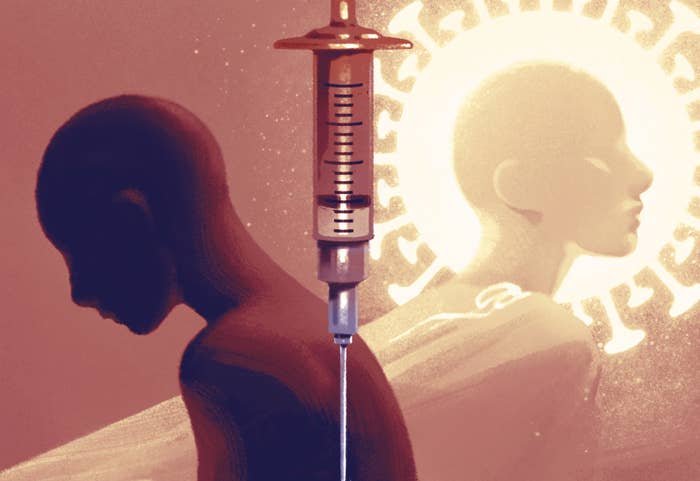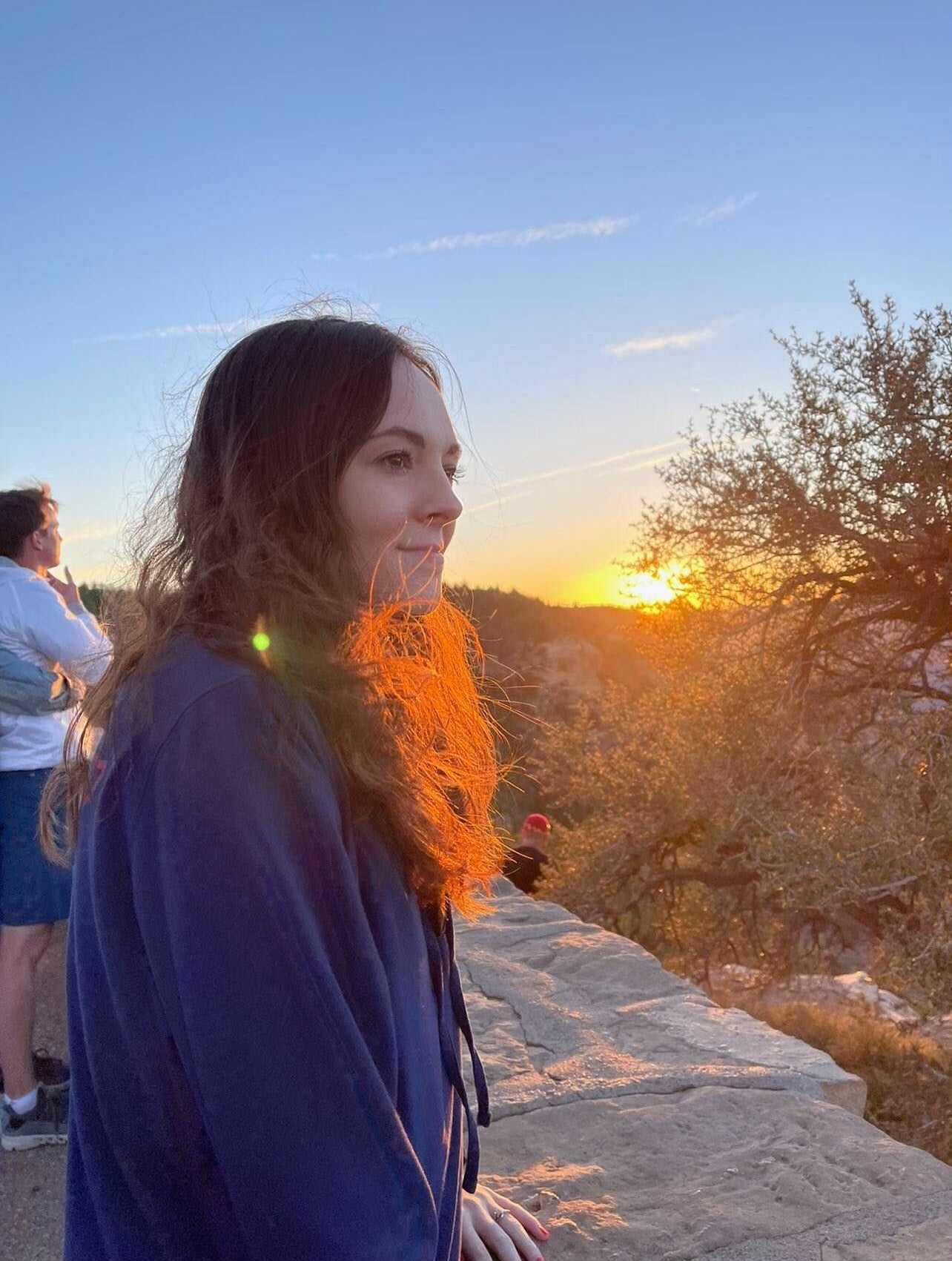
They weren’t people you’d typically pin as anti-vaxxers. He was a retired engineer and she had worked as a nurse. But the Florida couple, both in their eighties, refused to get inoculated against the coronavirus, and now he’s dead.
Just over a month since her father-in-law died, Marie is still grappling with the painful fact that he and his wife ignored the science to devastating results.
“It’s been worse for [my husband] because it’s his father,” Marie told BuzzFeed News. “But I’m mostly just angry at them, because this didn’t have to happen.” (Marie asked, like others in this story, that her last name and identifying details about her family not be used for privacy reasons.)
It didn’t have to happen, but it is happening, and will likely keep happening, to some of the roughly 1 in 5 Americans who’ve said they will not get a COVID-19 vaccine. With every adult in the US eligible for shots since April 19, and for older Americans months before that, there are now people dying of the deadly virus who were already eligible for vaccination before they became infected. As officials continue to work to overcome issues of accessibility and more and more Americans achieve immunity, a sense of optimism and seminormalcy is returning to the US, and the once-merciless death toll will continue shrinking to new, welcome lows. But as long as COVID-19 exists and people keep making the choice to remain unvaccinated, some will, inevitably, die, leaving their loved ones grieving a death that could have been avoided.
“I think the preventable death aspect that we’re now headed into is going to be really hard for people who lose people to it,” said grief therapist and author Claire Bidwell Smith. “It’s not that we could ever get closure or feel resolved about a death, but I think when it was so apparently preventable, it’s something people end up really struggling with.”
Despite their scientific backgrounds, Marie said, her father- and mother-in-law had lost trust in modern medicine and slipped into vaccine skepticism over the past decade, influenced by the right-wing media they avidly consumed.
Knowing their views, it came as no surprise to Marie or her husband that his parents did not opt for the vaccine when they became eligible months ago. “There really wasn’t anything we could say to sway them,” she said. “Maybe if we lived near them we could’ve been enough of a presence to counter some of that, but they were adults and they made up their own minds.”
After her father-in-law came down with COVID-19 in April, Marie said, he did not seek professional medical care. Instead, he self-treated with ivermectin, a drug used to treat parasitic worms that has joined hydroxychloroquine as yet another false COVID “miracle drug.” At best, officials warn, it has inconclusive results; at worst, it can be dangerous. Just days after getting sick, Marie said, he died suddenly and unexpectedly at home of what is thought to have been a heart attack. Marie does not know whether it was caused by COVID-19, which research suggests may lead to heart issues, or the medication he took, which the FDA has said can cause death.
“I’m angry that they didn’t listen to science. I’m angry they let the conservative view of their state government and of the conservative media convince them that COVID is not that much of a threat,” Marie said.
“I feel guilty that I’m not more sad, [but] I know that anger is part of grief, and I expect that the real grief will come.”

Grief like Marie’s can be a unique experience — the grief of losing a loved one because of a choice they made. Smith, the therapist and author, said anger is a normal and expected reaction to such a death. “Anger is a powerful emotion, so it’s an easy one to take on when you’re grieving — it’s much more powerful than sadness,” Smith said. “And there are some justifiably angering cases here, where people didn't take precautions, didn’t believe in things.”
According to Smith, many people who were close to someone who died in this way may experience “complicated grief,” a condition in which a person experiences an intense, long-lasting, and disruptive period of mourning.
“Say you had a very stubborn uncle who didn’t want to get the vaccine and then died of COVID — his loved ones will still somehow assume responsibility,” Smith said. “They may struggle for months, maybe years, with the idea that maybe they could’ve changed his mind and done something to prevent his death.”
To make matters worse, the upcoming few months may be a particularly difficult time to be mourning, according to Camille Wortman, a psychology professor at New York’s Stony Brook University who specializes in traumatic loss and bereavement. Americans are largely entering a joyful period as the pandemic ebbs toward a much-hoped end, which could feel surreal and isolating for people going through grief.
“Everybody wants to put the pandemic behind them ... they don’t want to think about grief, they don’t want to talk about it, they don’t want to see anyone’s grieving,” Wortman said. “These people who experienced the loss of a loved one who didn’t have to die, that was preventable, are going to have a really difficult time getting support and love from their own family, friends, and neighbors.”

Isabella, a 21-year-old who lives in Michigan, lost her great-aunt and great-uncle, both of whom were in their late seventies, in just a three-day span late last month.
Throughout the pandemic, Isabella had felt like a bit of a black sheep in her conservative, COVID-flippant family. Even so, she was shocked when she found out that her great-aunt and great-uncle had died after not getting vaccinated. Both had been eligible for a dose since the beginning of January.
“I wanted to go back in time and tell them, ‘You should get the vaccine, it’ll help,’” Isabella said.
But recently, more and more of her family members have started getting vaccinated. Much of this, she believes, is because they saw her safely receive a dose, but she also suspects that losing two of their own was a reality check.
“It opened their eyes a little bit,” she said. “I truly think in the back of their minds they kind of realized more that this is serious and not something to play around with.”
Brianna Berry, 32, has spent much of the past year reflecting on how gravely consequential people’s actions can be to those around them. In April 2020, her 37-year-old husband, Lew, died of COVID-19 despite the couple having taken precautions to avoid getting sick. She spoke out at the time through his obituary, urging people to take the pandemic seriously so that more people like Lew wouldn’t face such tragic repercussions.
Berry said last year’s frustration over people not wearing masks has evolved into similar feelings about people opting out of vaccination. “I think if I had my husband die because he refused to get vaccinated ... I would be so angry at him,” Berry said. “I think it would make my grief so much more complicated because there would’ve been something that could’ve been done, and he wouldn’t have done it.”
While just over 50% of the adult US population is now fully vaccinated, seeing the nationwide dropoff in vaccinations has been upsetting to Berry. She hopes the loved ones of unvaccinated people who die will take it as a wake-up call to get their shot. “When you go through grief, you already think of all the things you could’ve done differently leading up to their death,” she said. “Knowing there’s something that was free, accessible, and could have prevented their death, it’s heartbreaking.”
“I just keep saying to so many people, ‘It can’t happen to you until it does,’” Berry said. “I never thought I would’ve been a widow at this age.”
Mourning the death of someone who refused a vaccine may be complicated for many; not everyone will feel an outpouring of sympathy for a person lost to a choice that put themselves and others in danger.
But Kristin Urquiza, whose father died nearly a year ago and who went on to found the organization Marked by COVID, urges people to think about where they’re placing blame.
“It actually kind of boils down to a leadership failure, to me,” she said. “I don’t get angry so much at the individual — I can be disappointed, but I get infuriated at the fact that our government led us to this place.”
Urquiza said she hopes people grieving the deaths of unvaccinated loved ones don’t hesitate to seek out support from others who’ve lost people to the virus. She said that just a few weeks ago, one man spoke at her online support group about losing his father, who’d refused a vaccine.
“The rawness of his anger and frustration and pain was just so plain on his face,” she said. “Every single person on that Zoom [was] just so crestfallen and heartbroken for this thirtysomething-year-old who now has to go through his life without his dad.”
“I know what that pain is like,” she said. “And it takes so much to be able to get up every single day and start to piece together your life.” ●
